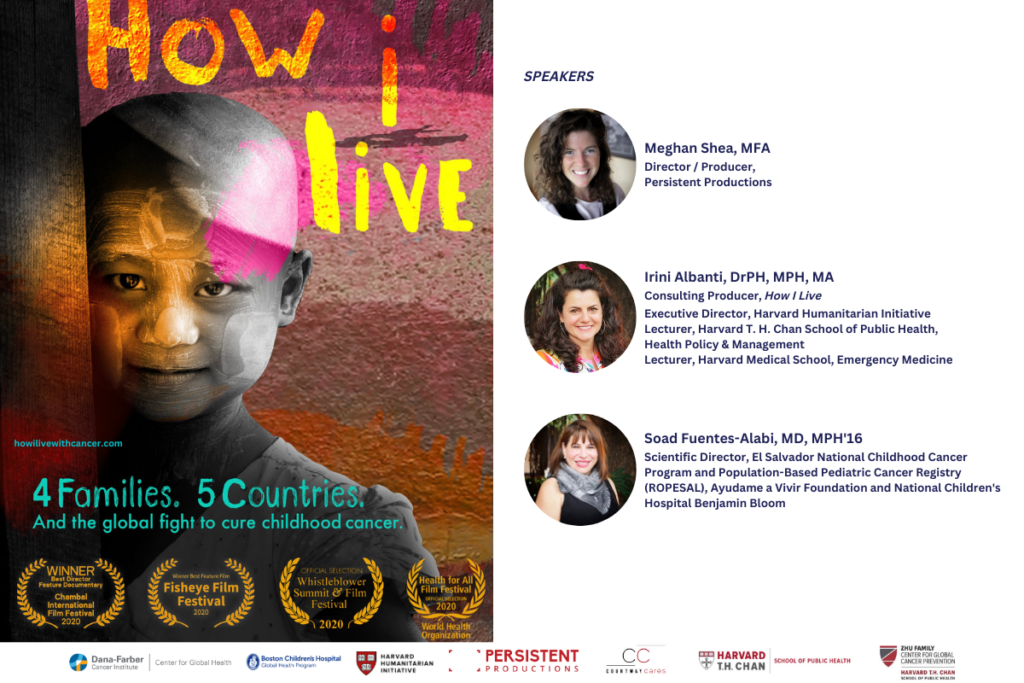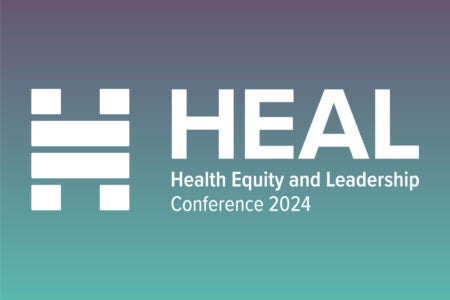
- This event has passed.
Impact Filmmaking As A Tool For Public Health Change
September 6th, 2023 @ 1:00 pm - 1:50 pm

Discover how films can create awareness, inspire action, and bring about positive transformations in public health. This presentation will discuss the film How I Live, which follows the incredible journeys of four children with cancer and the healthcare teams working to cure them. The film documents the difficulties not only of cancer treatment but also the physical and geographic obstacles to accessing care and how these can be the most daunting to overcome.
Co-hosted by the Harvard Humanitarian Initiative, Center for Health Communication at the Harvard T.H. Chan School of Public Health, Dana Farber Cancer Institute, Boston Children’s Hospital Global Health Program, Persistent Productions, Countway Library, and the Zhu Family Center for Global Cancer Prevention.
This presentation is open to HSPH and HMS affiliates. A complimentary lunch will be provided.


